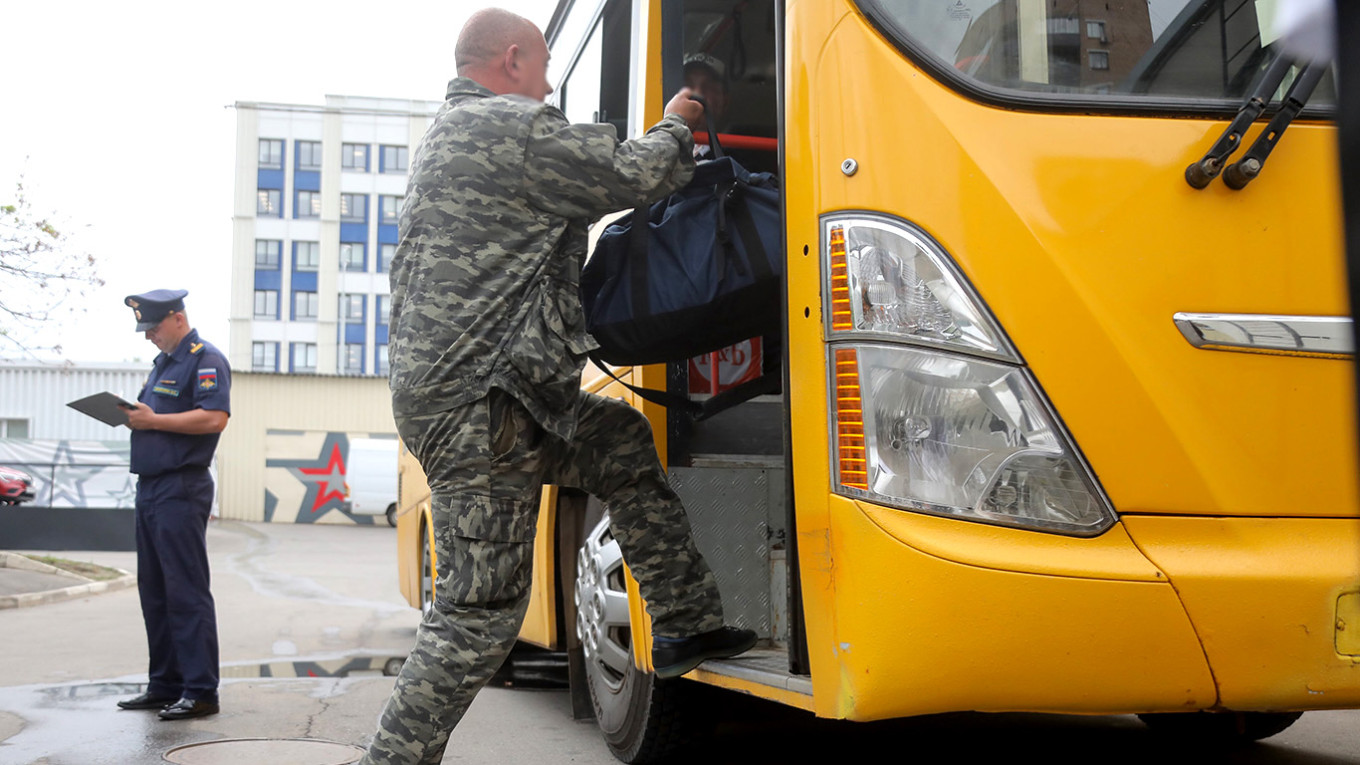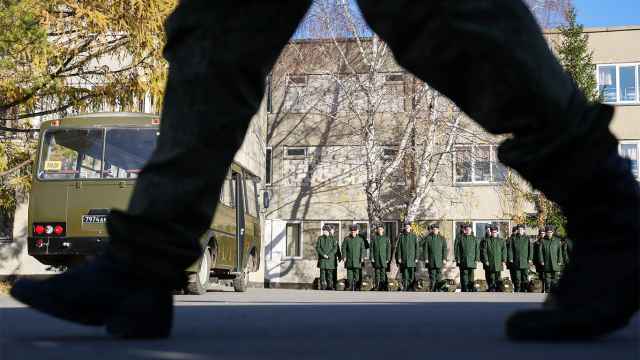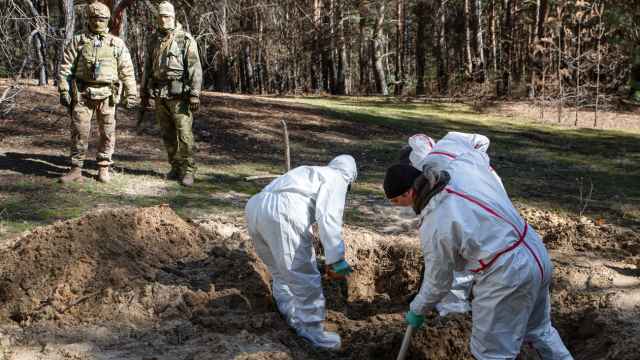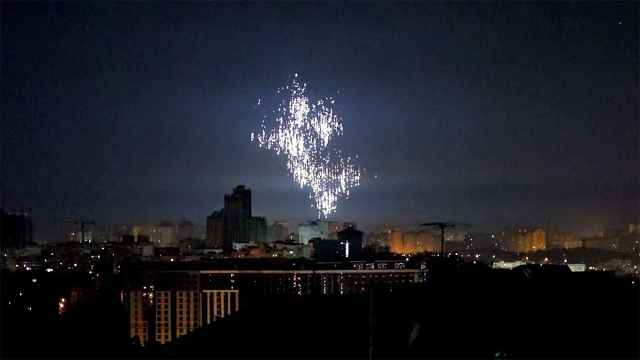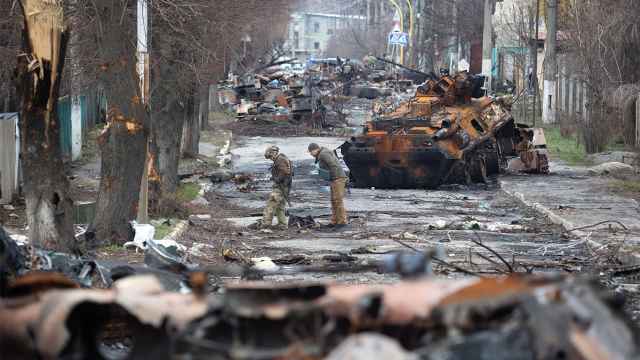The Kremlin is increasingly turning to creative measures to boost its troops without formally declaring another unpopular mobilization as Russia's invasion of Ukraine grinds on.
From TV marathons promoting war recruitment to increasing payments, Russian regions are looking for ways to address the need for fresh troops on the front line.
The Kremlin said last year the number of contract servicemen was growing due to “consolidation in society” and “attractive financial conditions” for soldiers, with the Defense Ministry claiming in April that more than 100,000 people had signed up to fight since the start of the year.
However, experts said that the rising payments for soldiers reflect the country’s ongoing manpower crisis as civilians’ interest in going to war dwindles.
The Moscow Times looked at the various methods the Kremlin is using to entice Russians to sign military contracts:
Increased payments
The Russian government is offering substantial financial incentives to potential soldiers.
While military contracts with the Russian army promise monthly earnings of around 200,000 rubles ($2,166) — about 2.4 times higher than the average salary in Russia — some regions have also recently increased the one-time payments to those recruited.
In Moscow, Mayor Sergei Sobyanin increased the one-time payment a soldier could receive to 1.9 million rubles ($22,353) in addition to his monthly salary. In the Chelyabinsk region, one-time payments have been doubled, with a soldier getting some 705,000 rubles ($8,233) for signing a military contract. In the Yamal-Nenets autonomous district, one receives a sum around 14 times higher than Russia’s average salary — 1.1 million rubles ($12,964) — after signing a military contract.
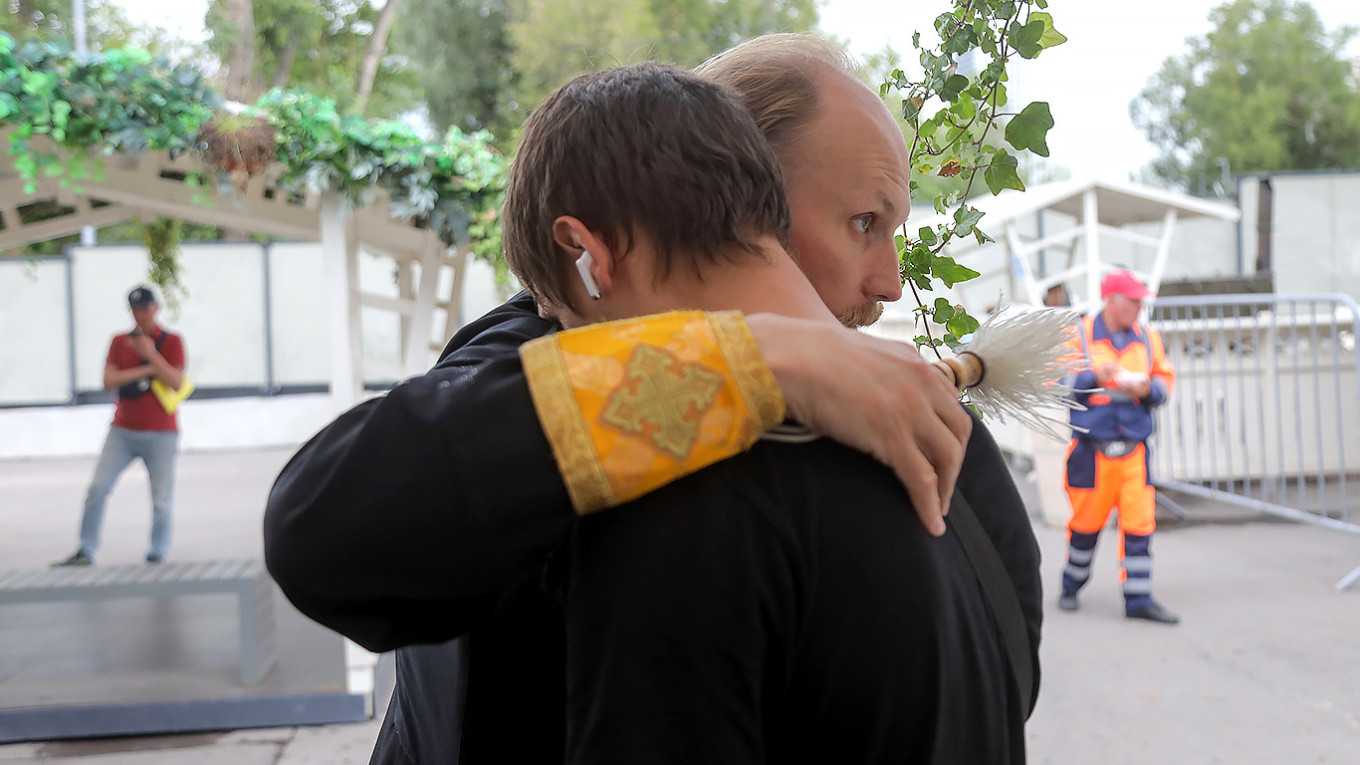
The Moscow and Leningrad regions also lure men to join the army by highlighting the total amount of money, including all payments and salaries, they can receive for one year of military service — 5.3 million rubles ($60,592) and at least 3 million ($34,955), respectively.
At least 51 Russian regions have increased payments for signing military contracts at least once since the start of the war in Ukraine, the independent Novaya Gazeta Europe news website reported last month.
Advertisements
In addition to financial incentives, the Russian military has also been employing a robust advertising campaign to target new recruits.
This month, the republic of Tatarstan held “Join the Army of Victory,” a 12-hour TV marathon calling viewers to go to enlistment offices in exchange for "unprecedented measures of support for our patriots from the leadership of the republic” — the screen at the TV studio promised “payment of up to 1.5 million rubles ($17,391) for those joining the army.
"Increased payments can also be received by residents of other regions and foreigners who have signed a contract in Tatarstan," one of the hosts said.
Promotion of military service has also been integrated into public events and holidays.
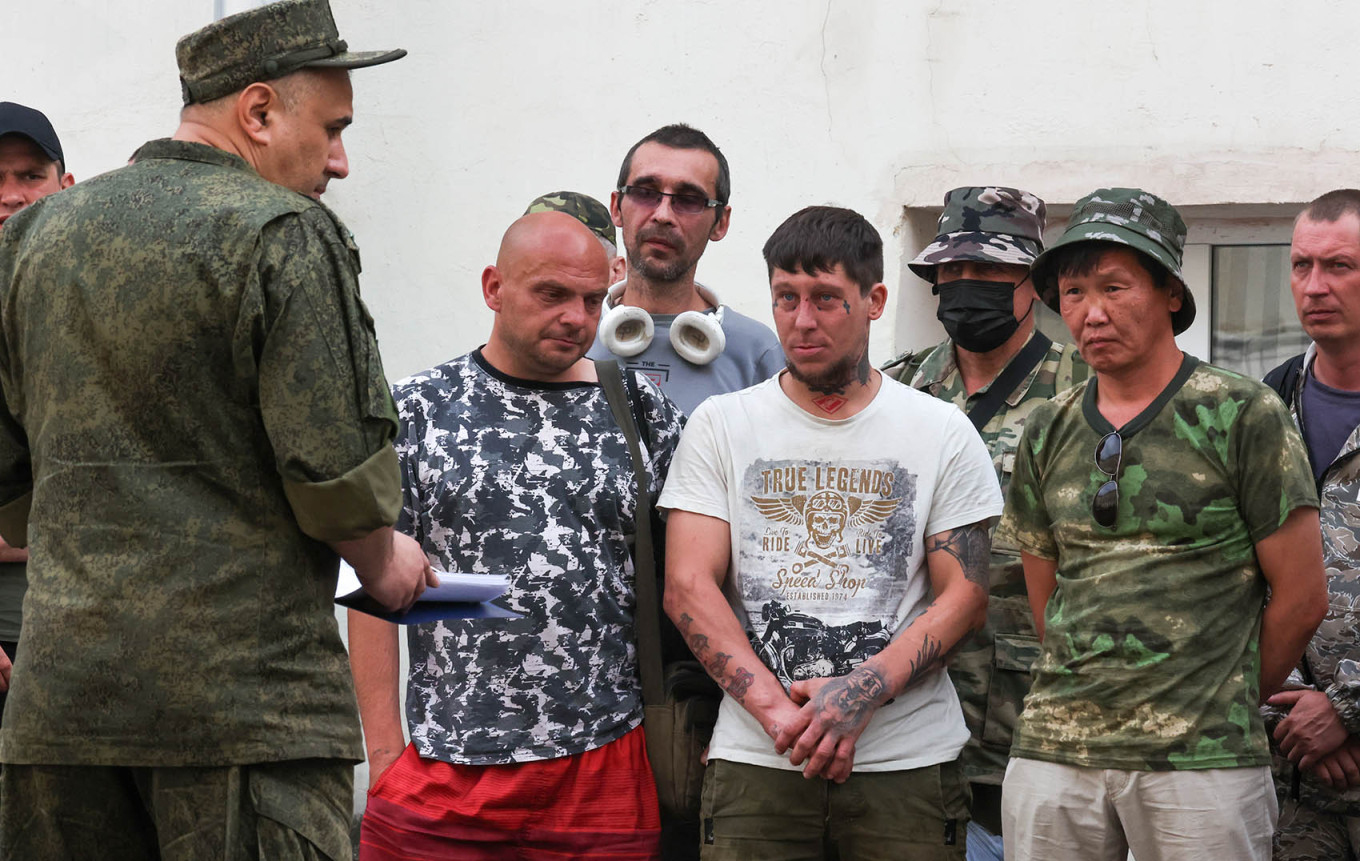
In Moscow, a mobile enlistment point was seen by a Moscow Times reporter at a World War II memorial park during Victory Day celebrations in May. An additional enlistment point was also opened last year at the Defense Ministry's military-themed Patriot Park outside Moscow during the Army-2023 forum.
In the city of Norilsk, an Arctic nickel-mining hub in the Krasnoyarsk region, local authorities reportedly sent letters to entities calling to “notify all the men in your team” about payments and rules of joining military service, the Sibir.Realii news website reported this month.
'Refer a friend' scheme
At least nine Russian regions have also launched military recruitment campaigns that allow people to earn bonuses for enticing acquaintances to sign military contracts, the news outlet Vyorstka reported this month.
In the Voronezh region neighboring Ukraine, local residents were promised 15,000 rubles ($17,391) for each person who would sign a military contract, Vyorstka said, citing a local recruitment hotline.
The governor of the Yaroslavl region, Mikhail Yevrayev, announced this month a similar scheme that would pay individuals 100,000 rubles ($1,163) for each referral sign-up.
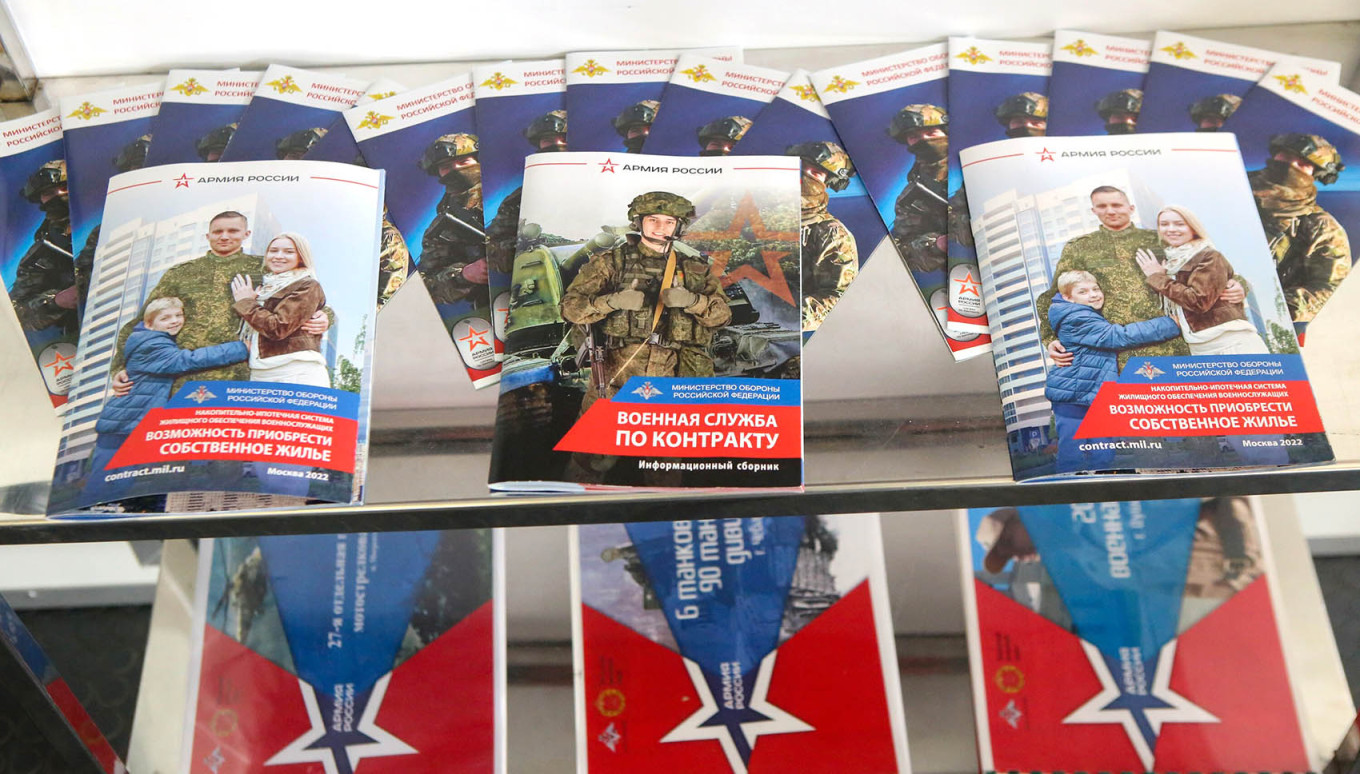
Similar schemes were reported in the Far East republic of Sakha, the Arkhangelsk, Kaluga and Ivanovo regions and the Yamal-Nenets autonomous district.
Businessmen in the Moscow region were reportedly instructed to convince a certain number of employees to sign military contracts, Vyorstka said, citing a source in the city administration.
Do Russians want to sign military contracts?
The rapidly increasing bonuses for signing military contracts point toward a shortage of people willing to serve in the military, said economist Tatyana Mikhailova.
Mikhailova, who analyzed Yandex search engine requests for military service, said that the effect of raising payments is quite modest, boosting search traffic by about 12% initially before interest gradually returns to normal.
In 2024, searches for information about contract service start to decline as soon as the fifth week after the payments are increased, Mikhailova said.
"The economist's argument is straightforward: if prices are increasing rapidly, it indicates that the product is in short supply," the expert said.
"If there are already plenty of people willing to go to war, why is there a need for this [bonuses] competition?"
A Message from The Moscow Times:
Dear readers,
We are facing unprecedented challenges. Russia's Prosecutor General's Office has designated The Moscow Times as an "undesirable" organization, criminalizing our work and putting our staff at risk of prosecution. This follows our earlier unjust labeling as a "foreign agent."
These actions are direct attempts to silence independent journalism in Russia. The authorities claim our work "discredits the decisions of the Russian leadership." We see things differently: we strive to provide accurate, unbiased reporting on Russia.
We, the journalists of The Moscow Times, refuse to be silenced. But to continue our work, we need your help.
Your support, no matter how small, makes a world of difference. If you can, please support us monthly starting from just $2. It's quick to set up, and every contribution makes a significant impact.
By supporting The Moscow Times, you're defending open, independent journalism in the face of repression. Thank you for standing with us.
Remind me later.



